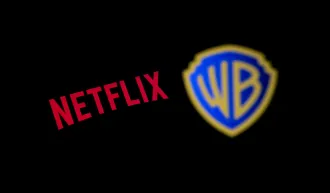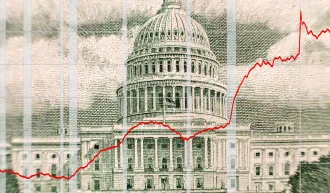February 01, 2008
| by Michele ChandlerU.S. medical products firm ATL manufactures a battery-operated, handheld sonar device that’s selling briskly in rural India and Asia. The portable machine enables doctors examining pregnant women to determine the gender of the unborn. And in those countries, unwanted female fetuses may be aborted.
What’s an ethical company to do?
That’s just one of the dilemmas discussed while exploring “Academic vs. Real World Ethics,” during a session led February 6 by political scientist David Brady. The program was sponsored by the Business School Alumni Association’s Lifelong Learning program and the Stanford Law School.
“The fundamental question is: Do corporations have a responsibility beyond maximizing profits? As the world gets more global, managers are more and more being put in these situations and there’s no one” to go to for solutions, said Brady, the business school’s Bowen H. and Janice Arthur McCoy Professor of Political Science and Leadership Values.
Rather than come up with hard answers, Brady often raised more questions as he tossed ideas back and forth with the audience of Business and Law School grads who run their own companies.
“Sex selection is against the law in India and China. They just aren’t enforcing this,” said Brady. “Is there a right to sell a product that’s approved by law and highly beneficial? How do we address the conflict between rights? The question is: Does the good outweigh the bad?”
The controversial nature of the ATL product has prompted some professors not to use it as a classroom case study, Brady said, while some students have told him the situation described makes them uncomfortable. To that, Brady responded: “That is what I am supposed to do. Twenty years from now, you’re going to be running a company and there will be some issues that come up and you can’t say, ‘that makes me uncomfortable, let’s not talk about it.’”
In early 1998, ATL spun off its SonoSight division, maker of the handheld units, as an independent public company, which now sells through distributors in China and India. Later that same year, ATL was sold to Royal Philips Electronics, becoming part of the company’s Philips Medical Systems subsidiary.
Another case that sparked debate was an unnamed American manufacturer of a low-cost kerosene heater. Safety features are included in the product sold in the United States, but not in the version of the heater that same company sold to the Turkish government, raising a greater possibility of accidents.
What action should the company take?
“I came out on the grounds that the Turkish government is in the best position to know what the tradeoffs are between keeping people in those huts in the mountains warm versus the danger of accidents,” Brady said
One audience member had a different approach. “I would think the value of a Turkish life is equal to the value of an American one,” he said. “As CEO, I would not be comfortable taking the safety features off.”
If the first company refused to sell the stripped-down product to the Turkish government, another company would likely oblige, observed another participant. Yet another pondered if the company should cover the extra cost of adding safety features to the Turkish products.
Another asked for more facts. “The information you don’t have is how many people are dying from the cold relative to the danger that they would perish in a fire caused by the kerosene lantern. Who are we to say that we’re going deny them the right to buy a kerosene lantern that would save 10 people at the risk of .1 percent of them perishing?” said the participant.
The program also pondered the ethics of illegal music downloads or whether an American couple should spend five figures to expand their home when that money could improve the lives of an entire village in some developing nation.
Brady added an observation on human nature. People who are made to feel good tend to treat others better, he said. “If you’re standing outside a bakery with the smell of fresh bread in the air, you are more likely to help a stranger than if you are standing outside a neutral smelling dry goods store. If someone drops papers outside a phone booth, you will be more willing to help them if you have just found a dime in the coin return slot than if you didn’t.
“Ethics should be trying to say: How do we set up the situation or an institution that keeps us out of situations in which we might do the wrong thing?”
For media inquiries, visit the Newsroom.





